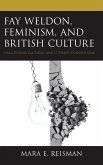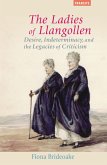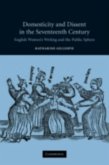Precarious Domesticity and the British Novel: Space, Gender, and Empire investigates the ways domesticity shapes and threatens female characters in British fiction from the 1750s to the 1850s. Going far beyond the well-trod ground of the marriage plot, women writers in this period explored complicated issues such as sexual abuse, grief, and the way coverture and inheritance laws challenged women's survival. The author argues that women writers used the novel as a space where they could confront anxieties about the precarity of domesticity and the implicit threat of homelessness many women of the middle ranks faced. Precarious Domesticity explores the way female characters subvert these dynamics by reordering domestic space to enact ingenious and creative resistances to their marginalization in Jane Collier, Sarah Scott, Frances Burney, Jane Austen, Elizabeth Gaskell, and Charlotte Brontë. The author also explores the implications of British imperialism's impact on domestic ideology, both in the consumer products imported into England and the wealth derived from plantation slavery and global trade made possible by enslaved labor.
Bitte wählen Sie Ihr Anliegen aus.
Rechnungen
Retourenschein anfordern
Bestellstatus
Storno









